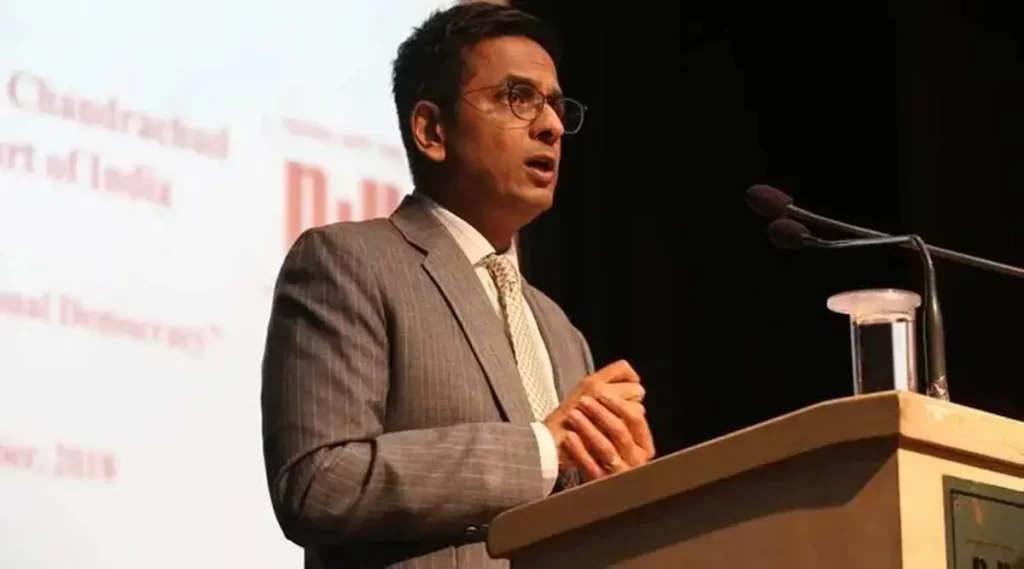Jahanvi Agarwal
Chief Justice of India (CJI) DY Chandrachud recently emphasized the necessity for more women judges in the judiciary, dispelling the myth that female judges automatically deliver “liberal” outcomes.
Speaking at a lecture at Cambridge University on June 6, CJI Chandrachud affirmed, “To postulate that merely because you have a woman as opposed to a man deciding a case, that you would have a more ‘liberal outcome’ would be a wrong perception. You don’t have to have more women on the Bench in the hope that you would have a more liberal judiciary. Let’s make that very clear.”
To support his argument, CJI Chandrachud brought up the Sabarimala case (Indian Young Lawyers Association and Ors. vs. State of Kerala and Ors. ((2017) 10 SCC 689)), where the sole dissenting opinion came from Justice Indu Malhotra, the only woman on the bench. He explained, “In the Sabarimala case, the issue was whether women of menstruating age should be barred from temple worship. I was in the majority, ruling that menstruation should not be a reason to prevent women from praying, even if the deity is considered celibate. While I respect the traditional viewpoint, I approached it from a constitutional angle. The sole dissent was from my female colleague”. This example highlighted that gender does not dictate judicial outcomes and emphasized the need for more women judges for their unique perspectives, not for perceived biases.
He recounted how his law clerks were surprised by her dissenting opinion, which they had assumed would be more “progressive” simply because she was a woman. CJI Chandrachud argued that having more women judges is essential because of their unique perspectives shaped by their lived experiences.
He shared an example of Justice Bela Trivedi at the Supreme Court, who effectively brought the facts of a complex criminal case to life due to her distinct understanding. “She brought a lived reality to life. I believe that’s what having more women on the Bench contributes to – or a diverse segment of our community,” he said.
The CJI also pointed out that in several states, women are outperforming men in competitive district judiciary exams, which shows their potential when given equal opportunities. He stressed the need to support women in litigation and create structures to recognize their contributions, a responsibility that falls on both the courts and the Bar.
During the lecture, CJI Chandrachud also touched upon the reservations versus merit debate, highlighting the evolving definition of equality. He observed that earlier notions that reservations compromised merit have been questioned over time, with the Supreme Court eventually recognizing reservations as a facet of substantive equality. “I think all these opinions have contributed to a new synthesis and a new emerging notion of what really equality stands for,” he said, advocating for a more inclusive understanding of merit.
On LGBTQ issues, he noted that while the Supreme Court recently declined to recognize same-sex marriages, the discussions in court have sparked significant public dialogue. “The point which I am making is, this dialogue which takes place in the court paves the way for a future and a more evolving society,” CJI Chandrachud said.
During the Q&A session, CJI Chandrachud addressed a controversial observation made by a three-judge Bench in 2022, which quoted Oscar Wilde while commuting a child rape convict’s death sentence. Acknowledging that the remark was inappropriate, he emphasized the court’s self-corrective mechanisms and the ongoing efforts to sensitize judges. “That’s why there is a corrective mechanism in the courts really, to ensure that verdicts which are otherwise erroneous are corrected,” he stated, noting that the Supreme Court has released a gender handbook to tackle inappropriate remarks in judgments.

